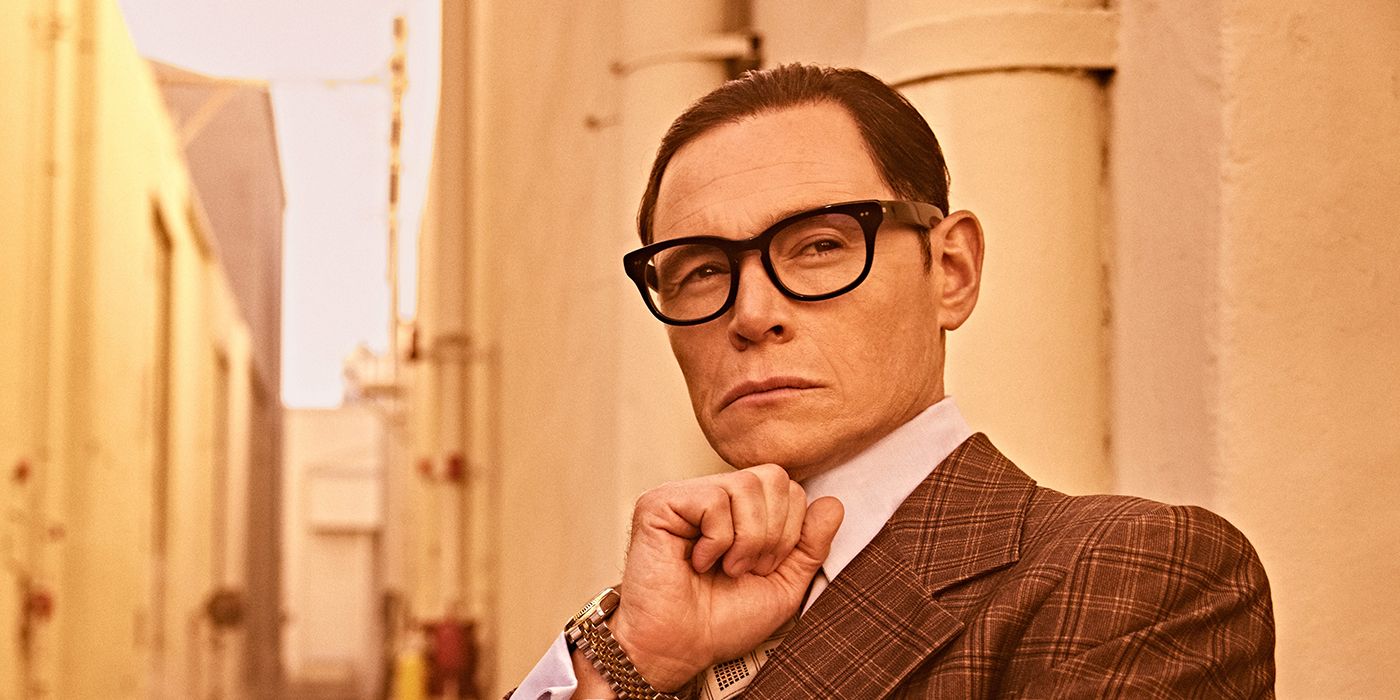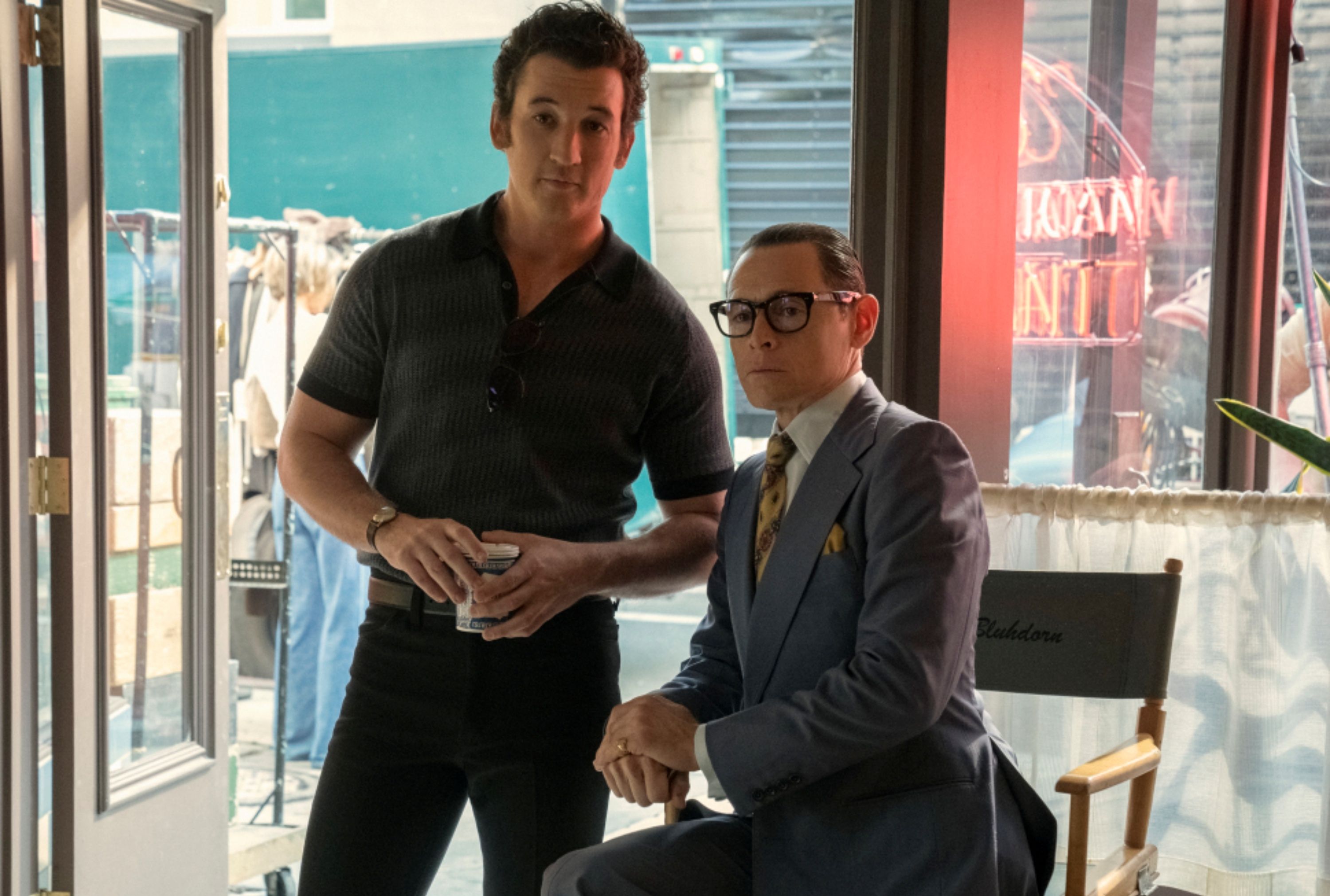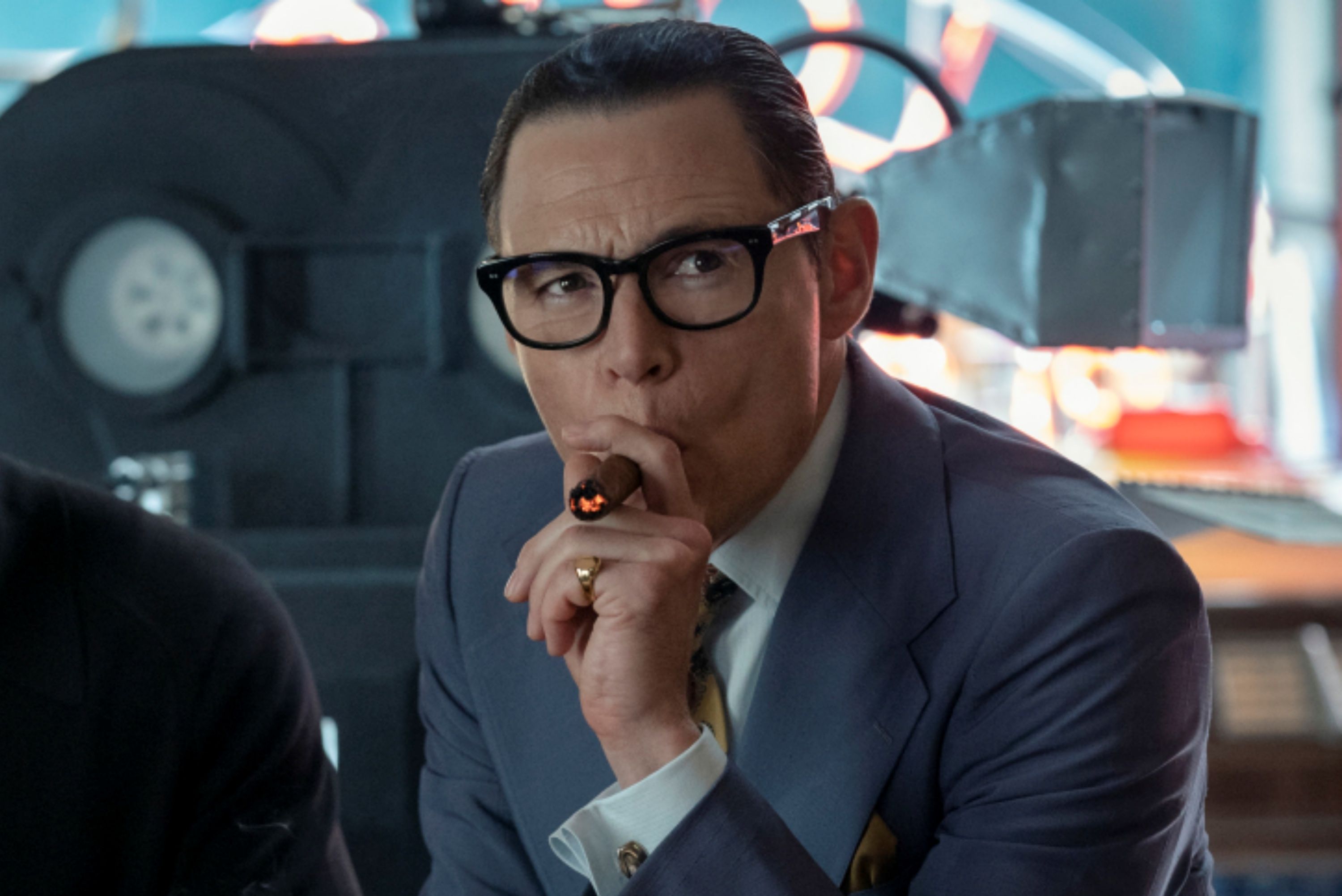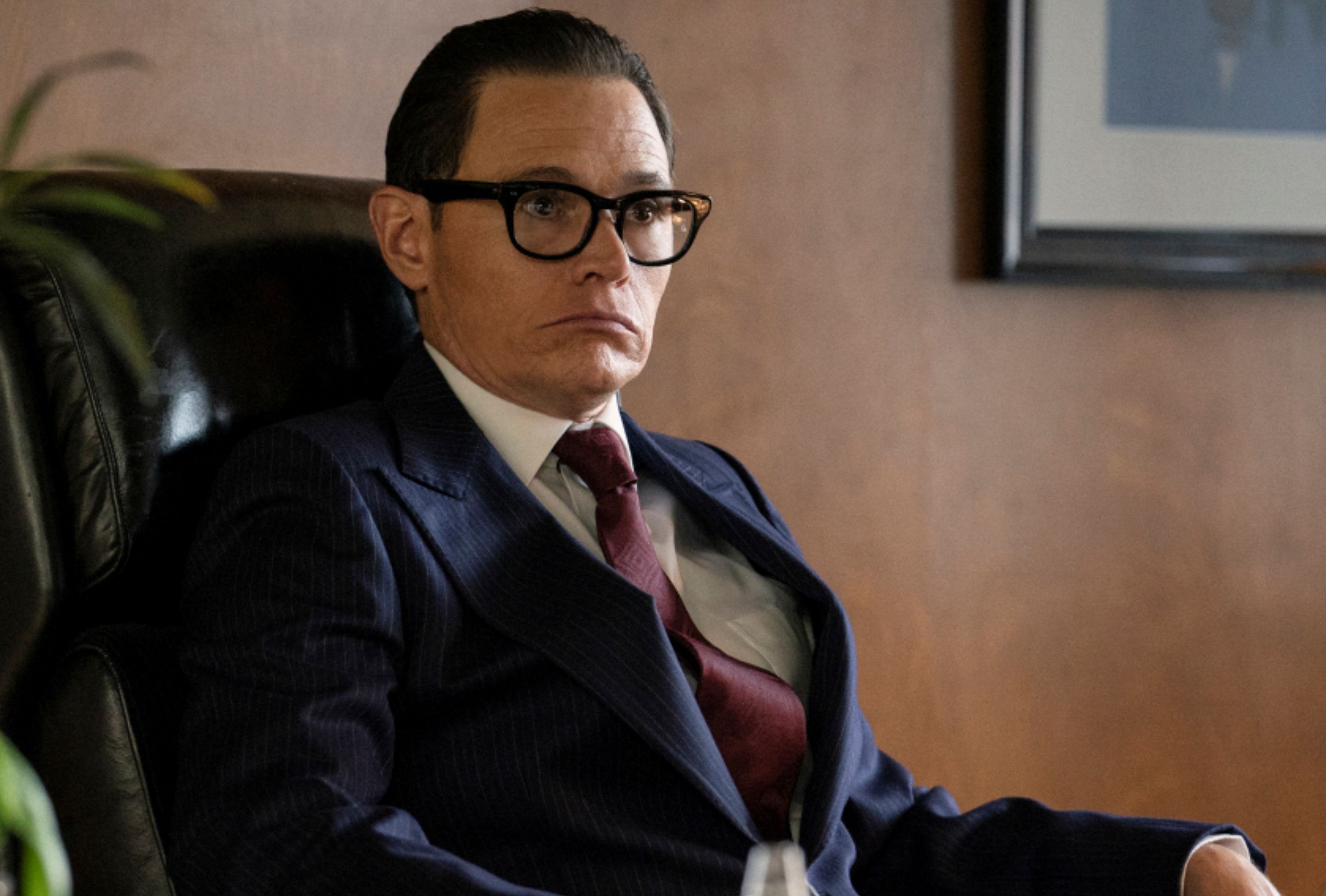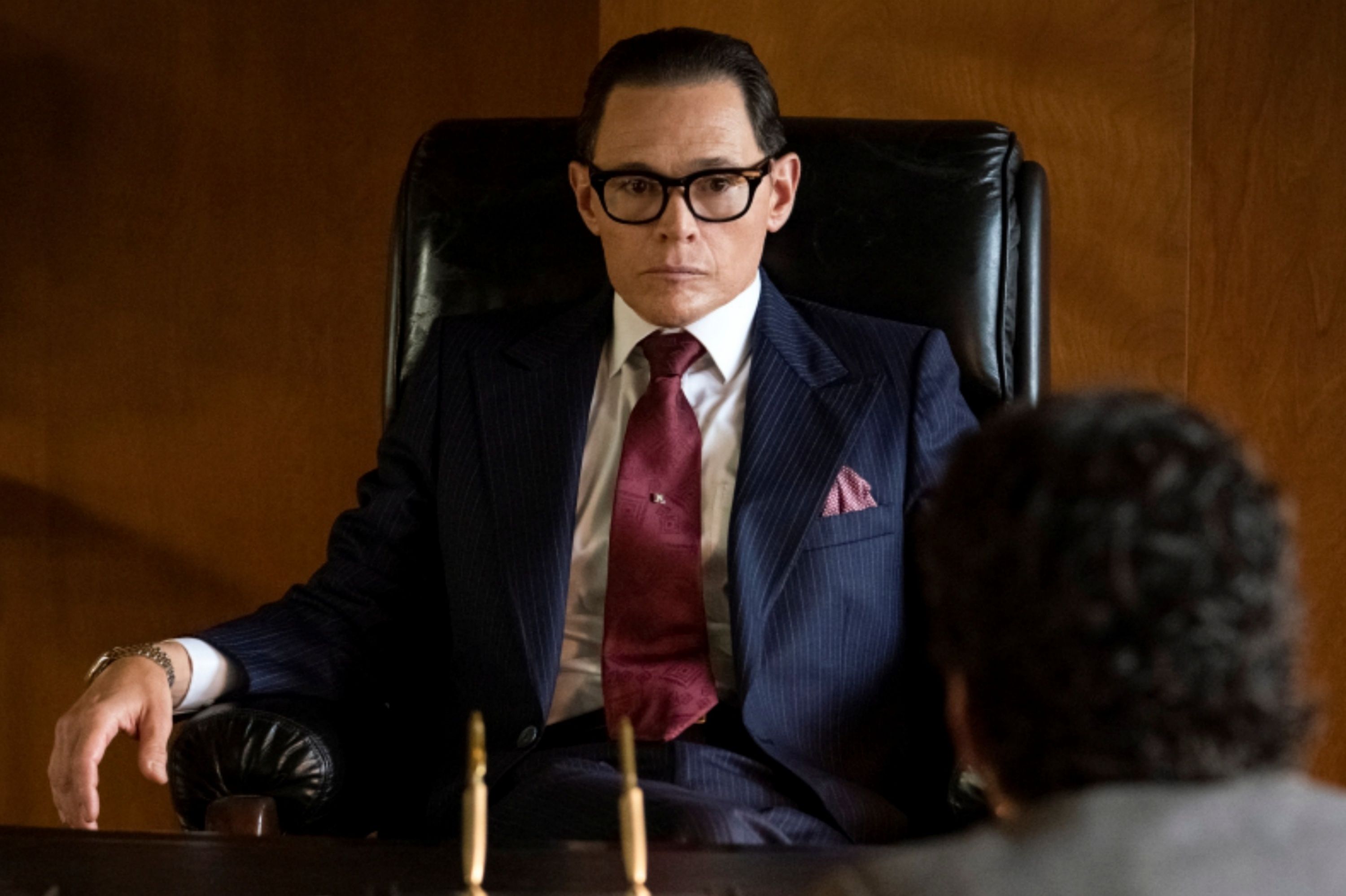Based on the extraordinary experiences of Academy Award-winning producer Albert S. Ruddy while making The Godfather, the Paramount+ original series The Offer shows the wild journey the New York City gangster film that had the approval of the actual mob remarkably took on its way to becoming one of the great cinematic masterpieces. In order to make the movie happen, Ruddy (Miles Teller) needed to get Paramount Pictures’ head of production Robert Evans (Matthew Goode), mob boss Joe Colombo (Giovanni Ribisi), the money guys (Burn Gorman, Colin Hanks), author Mario Puzo (Patrick Gallo) and director Francis Ford Coppola (Dan Fogler) all on the same page long enough to finish the production and assemble what they all knew it had the potential to be.
During this 1-on-1 interview with Collider, Gorman (who plays Charles Bluhdorn, the CEO of Gulf + Western, the corporation that owned Paramount Pictures in the 1970s) talked about what he found so interesting about this story, playing in the gray areas of life, what most surprised him about what it took to make The Godfather, what he most enjoyed about the dynamic between Bluhdorn and Bettye McCartt (Juno Temple), and the experience of sharing scenes with Teller and Goode.
Collider: When the idea of all this came your way, what was your reaction to it? Did you immediately think it was a cool idea, or did you wonder how it was all going to work?
BURN GORMAN: I was like, “Oh, my God, they’re making a show about the making of The Godfather, one of the greatest films ever made, with all the characters, the color of the seventies, and the eccentricities. I’ve gotta be a part of this.” I was so pleased to be considered by Dexter [Fletcher] and Paramount, and the rest of the team. And then, to get the job, it was one of those special jobs that only come along every so often.
It seems like there are so many ways that this could have gone wrong, even in just the casting and portrayal of people, like Marlon Brando and Al Pacino. What reassured you that this would actually get pulled off, in a way that you could be proud of?
GORMAN: Well, it’s a good team. A lot of the actors that I worked with on this, I’ve admired their work for so many years. We didn’t even actually get to see a lot of each other. This was filmed during COVID, so I worked with Matthew [Goode] and Colin [Hanks] a lot, but I never worked with Giovanni [Ribisi] and only had a few scenes with Dan [Fogler]. It was so nice. It was actually quite surreal to be working with Justin [Chambers], when he played Marlon Brando, and Anthony [Ippolito], when he was playing the young Pacino. And it was surreal, seeing these iconic scenes and sets, which were exact replicas of the sets from that time. It was one of those pinch me moments, sometimes walking onto set and being on the Paramount lot. If that doesn’t get your heart beating a little quicker then you need to check your pulse.
I love how each of these characters are the hero to someone and the villain to someone, depending on what the situation is. If someone wants something from them and they say no, they’re the villain. And if someone wants something from them, and they say yes, they’re the hero. What did you most enjoy playing about someone like that, who can make someone’s dreams come true or end their career, just with one decision?
GORMAN: It’s crazy, isn’t it? Doing research for Charlie Bluhdorn, there’s not an awful lot of video or audio. There are some pictures of him on the set of The Godfather, watching and checking up on them. There were also some great profiles about him, as an industrialist. He was talked about as the last romantic businessman. That was something which really appealed to me because, like all good characters, he’s not black and white, in terms of his morality. It’s the gray areas of life that are the most interesting. And also, I’ve gotta be honest with you, it’s cheap therapy to be able to come into work and shout at someone. It means that I don’t have to be like that in real life. I loved playing this guy and I really hope that we’ve honored Al Ruddy’s story and everyone who was involved in The Godfather. It was just one of those great projects.
I was so fascinated by how this digs into and really weaves together the layers of the studio, the corporate bosses, the producers and the mafia, and explained the roles that everybody played in getting this movie made and how they were all connected. What most surprised you about all of that? As someone who is actually in the industry of telling stories and making films and TV, what did you find most interesting about all of that?
GORMAN: I think Al Ruddy said that every day working on The Godfather was the worst day of his life. I know how difficult it is to get movies made. On the outside, it may seem like it’s just this magical world where somebody green lights something, and it goes forward. But ultimately, I was surprised at the absolute chaos that sometimes would ensue, on this particular movie. Especially with the executive that I played, and like Colin [Hanks], who made huge decisions about casting. They would take a personal dislike to Al Pacino, for example, or to [Francis Ford] Coppola, and might actually fire them off the job. When you look back at it now and think about how some of the greatest artists of the last 50 years could have so easily been knocked off this production, it’s inconceivable to me, when you learn about how close it came sometimes to collapsing. Thank God, it didn’t.
I love that crazy moment where Coppola was almost fired because somebody didn’t like how the lighting looked, before the movie was even finished and color corrected yet.
GORMAN: Yeah, they didn’t like his lighting choices. With Pacino, can you imagine being told on your first day of work that not only does the person who owns the studio not want you, but also Robert Evans just didn’t want him? It’s a testament to Coppola’s taste and intelligence that he saw something in Al Pacino who now, obviously, we know as one of the greatest actors of the last 50 years. At the time, he was just a young theater actor, and Francis saw him and took a chance on him, and that added to the alchemy of this wonderful experiment, which became The Godfather that we know and love.
Has it changed your perspective or the way you look at The Godfather now? It’s considered the greatest or one of the greatest movies of all time, and yet it also could have collapsed at any moment, so do you think about that now, when you look at the film?
GORMAN: Yeah, definitely. I remember the argument between Coppola and the lighting designer, and it was a really big issue. Scenes had never been lit in that way. For example, the beginning scene, where it comes back to America and there’s a shot that pulls back, it’s not candlelight, but it’s incredibly dark. At the time, that was a real experiment. I never knew that before. I never knew that there were real arguments on set where, essentially, they were worried that you weren’t gonna see the actors and Francis was like, “This is the way that I want it.” I wasn’t aware of any of that, and I appreciate it even more, knowing that.
One of the things I love most about your character is the relationship that develops and grows between him and Bettye. There’s something about her just really helps humanize him.
GORMAN: Yeah, I agree.
What did you most enjoy about that relationship, and having someone like Juno Temple to explore that with?
GORMAN: Juno really helped me click into the character. Before I worked with her, Charlie came in and he shouted a lot. He was known for this cement thick Austrian accent, which as an actor, you’re a bit like, “Oh, God, are people even gonna be able to understand me?” But like you very astutely said, Juno’s character, Bettye McCartt, humanized Charlie because ultimately Charlie respected Bettye. He wanted her opinion because he knew that she told the truth. She wasn’t Evans. She wasn’t a yes man, like Lapidus. She would genuinely say what the truth was, whether that was a script or casting, or whatever. And I agree with you, I think that he really gets humanized by Bettye McCartt, and their relationship throughout The Offer is really grounded by that. For me, it was to see the human.
Charlie Bluhdorn famously didn’t sleep more than five hours a night. He burned really brightly and was dead before he was 60. There was a sweetness, which I was able to find with Juno’s character, Bettye McCartt, where they were able to tell the truth to each other and she actually befriended him. I don’t think he had many people who he let in, and Bettye McCartt was one of those people. That was a real nice thing to be able to work on.
Bob Evans was such a big personality while Al Ruddy was much more measured in what he showed people. What was it like to have Miles Teller and Matthew Goode as scene partners throughout this?
GORMAN: I have to talk about Miles for a minute because this is a guy who’s basically in every scene. I was with him for maybe five months, and he really led this company from the front. His portrayal of Al Ruddy really is the center of this compass. Miles is a very skillful actor, and he is incredibly truthful, which almost gave us permission, as the larger characters, to feel safe enough to play a little bit. Obviously, Robert Evans was an icon and was an incredibly flamboyant and complex individual, but Miles really allowed us to play a little bit, and I’ve gotta commend him on his performance. It was wonderful to have him around. There are a few times where I shout at him to get out of the room, and he must have gotten a bit tired of that, but he never said a word. He was just an impeccable actor to work with, as was Matthew. When people are telling you the truth, it really pokes through. Charlie Bluhdorn respected Robert Evans’ taste, and he saw the gambler in Al Ruddy. He saw someone who would bring this in, in the beginning, hopefully on budget, but who would genuinely bring his A-game and get the thing done. As a businessman and as an astute gambler, really, he recognized the gambler in both of those two men and trusted them in that, and I’m glad he did.
The Offer is available to stream at Paramount+.

